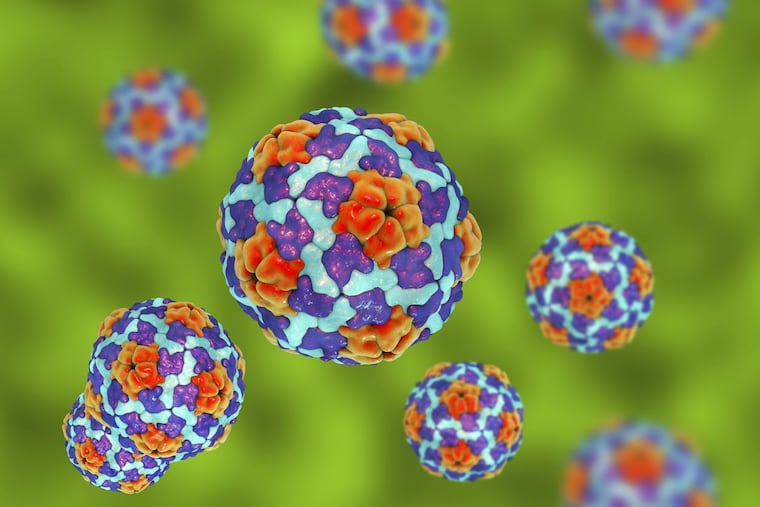Hepatitis A outbreak declared in Pennsylvania, with Philadelphia among hardest hit areas
The declaration makes the state eligible for funds to purchase more doses of a vaccine.

Pennsylvania officials declared an outbreak of hepatitis A in the state on Monday, citing 171 cases that have been reported since January 2018 in 36 counties, including Philadelphia.
The declaration makes Pennsylvania eligible for federal funds to purchase additional doses of a vaccine against the liver disease, whose symptoms can include vomiting and jaundice. The vaccine would be targeted at groups considered at high risk of exposure to the virus: those who inject illicit drugs, the homeless, and men who have sex with men.
The announcement, made by Secretary of Health Rachel Levine in consultation with the state epidemiologist, Sharon Watkins, was not prompted by a specific number of cases, only by the fact that cases are on the upswing.
Of the 171 cases since January 2018, more than 60 have been identified since January of this year, said Nate Wardle, a spokesperson for the state Department of Health. Outbreaks have been declared in 22 other states, some of which have been hit much harder. More than 2,000 cases have been reported in both Ohio and West Virginia.
The 171 cases in Pennsylvania include close to 40 cases in Philadelphia and two dozen in Allegheny County, Wardle said.
The department is not recommending that everyone rush out and get the hepatitis A vaccine. The immediate focus is on administering it to members of the groups at highest risk. Most of these people were born before the vaccine was widely available.
The vaccine was developed in the mid-1990s and has been recommended for all children since 2006.
Hepatitis A is typically transmitted through contact with feces, and thus is often spread when food and water are prepared in unsanitary conditions. But the current Pennsylvania outbreak has not been tied to food.
“It’s hard to know for sure why we are experiencing an outbreak of hepatitis A,” Levine said in a news release. “We do know that the commonwealth has seen an increase of diseases like hepatitis C and HIV because of the opioid epidemic.”